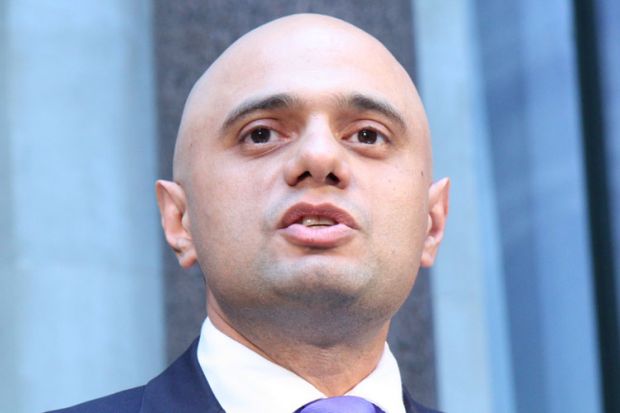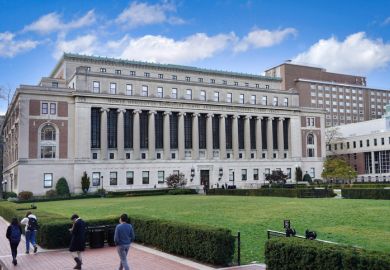Source: Foreign and Commonwealth Office
Sajid Javid has been appointed as business secretary by David Cameron.
The prime minister announced his Cabinet appointments this morning, following the Conservatives’ election victory.
Mr Javid, a former parliamentary private secretary to George Osborne who is seen as a protégé of the chancellor, succeeds Vince Cable, the Liberal Democrat MP who served as business secretary in the coalition government but who lost his Twickenham seat at the election.
A key question for the new business secretary will be his stance on international students, as Mr Cable – often aided by former universities minister David Willetts – was regularly at loggerheads with home secretary Theresa May over the damage done by Home Office rules and rhetoric on student visas.
Mr Javid has served as the MP for Bromsgrove since 2010 and was appointed secretary of state for culture, media and sport in 2014.
His personal website states that before entering politics he was a senior managing director with Deutsche Bank AG, having started his career with Chase Manhattan Bank in New York.
One Tory commentator has said that his background as the “Rochdale-born, state-educated son of a bus driver from Pakistan” gives him the potential to “transform the image of the Conservatives”.
Mr Javid joined the Conservatives during his time at the University of Exeter, where he studied economics and politics.
At Exeter, Mr Javid knew Tim Montgomerie, The Times columnist and founder of ConservativeHome, and Robert Halfon, the Tory MP for Harlow and newly appointed deputy chairman of the party.
Mr Halfon was quoted in a ConservativeHome profile of Mr Javid as saying that they turned Exeter’s Conservative Association from “old-style patrician Tories into a real political organisation, fighting the National Union of Students”.
Mr Halfon also said: “We just turned it into a kind of guerrilla fighting force. We took the NUS to the European Court of Human Rights.”
Register to continue
Why register?
- Registration is free and only takes a moment
- Once registered, you can read 3 articles a month
- Sign up for our newsletter
Subscribe
Or subscribe for unlimited access to:
- Unlimited access to news, views, insights & reviews
- Digital editions
- Digital access to THE’s university and college rankings analysis
Already registered or a current subscriber? Login




